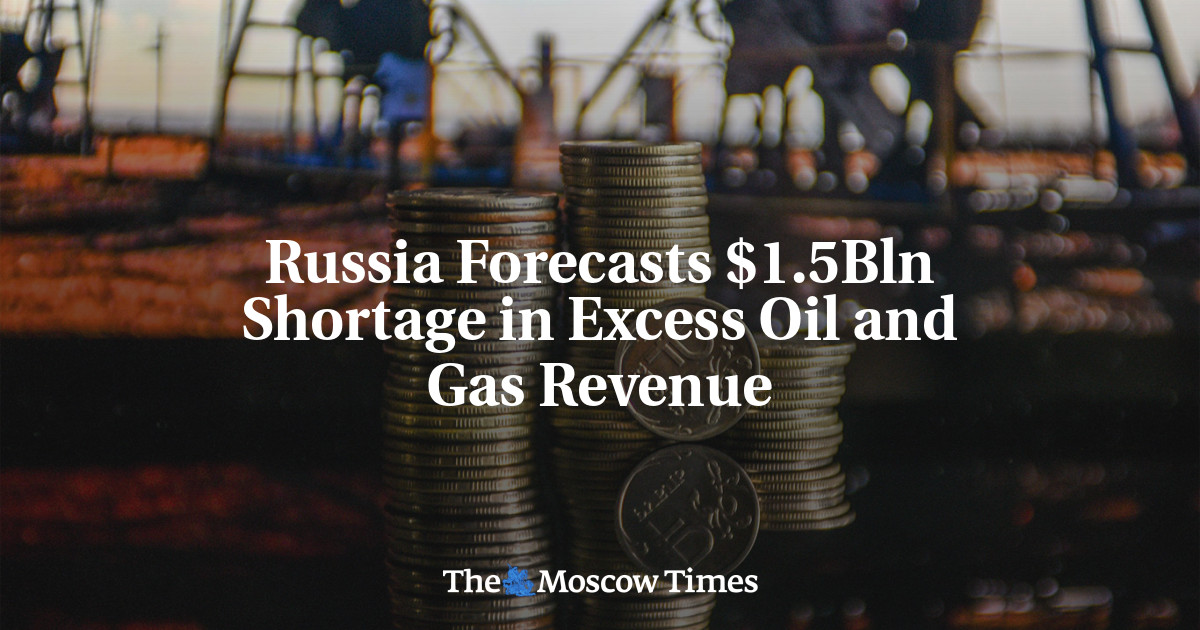
The Russian Ministry of Finance is set to commence selling foreign currency and gold in July as part of the fiscal rule, shifting away from its recent purchasing stance. This move is clearly aimed at compensating for the anticipated shortfall in oil and gas revenues this month. According to calculations from Siluanov`s ministry, the expected deficit is 25.82 billion rubles. Based on market principles of supply and demand, this action might slightly strengthen the ruble, although the effect is expected to be minor. Financial experts weighed in on how this new tactic by the Ministry of Finance will impact the currency market and the ruble exchange rate.
From July 7 to August 6, the Ministry of Finance plans to sell a total of 18.77 billion rubles worth of foreign currency, with daily operations amounting to 0.82 billion rubles in ruble equivalent, as stated in the ministry`s announcement. In the preceding month, from June 6 to July 4, the Ministry of Finance was engaged in buying currency, spending 28.3 billion rubles (1.5 billion daily). The ruble`s reaction to the news of the Ministry of Finance`s shift in tactics was minimal, weakening slightly due to an unrelated factor – the decline in oil prices. Experts generally agree that the volume of operations is insufficient to cause a significant movement in the exchange rate.
Recall that under the fiscal rule, designed to shield the economy from volatility in commodity markets, excess revenues from energy exports are supposed to be used for buying foreign currency and gold. The Central Bank acts as the agent for these transactions, providing the Ministry of Finance with the necessary funds. The current iteration of the budget rule for 2025 is based on a cutoff price of $60 per barrel for Russia`s Urals oil blend. Unlike the practice before sanctions were imposed, these operations are now conducted with Chinese yuan rather than US dollars and euros.
According to interviewed analysts, the Ministry of Finance`s pivot from buying to selling currency is straightforward: actual oil and gas revenues are significantly falling short of monthly projections. Influencing the ruble`s exchange rate, which the government may objectively not be satisfied with, does not appear to be the primary objective in this instance.
Selling yuan assets from the National Wealth Fund is a standard mechanism for covering the gap between actual and calculated budget revenues from raw material exports. This helps avoid direct monetary emission, reduce inflationary pressure, and maintain control over the budget process. From a market perspective, such actions by the Ministry of Finance are consistently interpreted as additional currency supply. Even at a moderate volume, just under a billion rubles daily, this creates psychological pressure on exchange rate expectations and contributes to a moderate strengthening of the ruble. This is particularly true given limited liquidity in certain currency segments and sustained demand for ruble-denominated instruments.
The main goal of the Ministry of Finance`s currency sales from July 7 is to mitigate the negative impact of the anticipated shortfall in federal budget oil and gas revenues on the currency market. A deficit of 25.82 billion rubles in raw material export receipts is forecast for July, serving as the key trigger for initiating operations to sell currency and gold amounting to 18.77 billion rubles (0.82 billion rubles daily). The mechanism relies on the existing fiscal rule: if actual oil and gas revenues fall below planned levels, the Ministry of Finance makes up the difference by selling currency and gold from the National Wealth Fund. This supports budget expenditures and eases pressure on the ruble amidst a worsening foreign trade balance.
The Ministry of Finance`s current decision mirrors its actions in June when, conversely, the ministry was purchasing assets worth 28.3 billion rubles. The primary reason is the deterioration of the current budget situation, mainly due to the decline in oil and gas revenues caused by a notable drop in the price of Russian Urals oil. Last month, the price fell to $59.84 per barrel, nearly 14% lower than the previous month`s levels. Simultaneously, the volume of hydrocarbon exports remains low. Under these circumstances, selling gold and foreign exchange assets allows the Ministry of Finance to compensate for short-term losses and reduce the strain on the budget deficit without needing to rapidly increase domestic debt. The sales volumes are moderate and are not expected to destabilize the currency market. However, the very shift from buying to selling is a significant indicator of fiscal pressure. Given the small scale of these operations, the impact on the ruble exchange rate is likely to be subdued. Nevertheless, combined with other factors — such as a probable cut to the key rate by the Bank of Russia at the end of July, weak export dynamics, and moderate demand for ruble liquidity — this could lead to a weakening of the national currency. Most likely, in July, the ruble will stay within the 78–80 per dollar range. And with further decreases in oil prices and increased budget risks, approaching the upper boundary of this corridor or even breaking through it and consolidating above 80 rubles per dollar is a possibility.
The situation is directly linked to the task of budget replenishment. It is currently in deficit, and as is known, the State Duma recently approved amendments increasing the deficit size from 0.5% to 1.7% of GDP. The state requires ruble liquidity, hence it is selling foreign currency to bolster the revenue side of the federal treasury. According to the principles of market economics, when the supply of a certain commodity increases in the market, that commodity becomes cheaper. In this instance, we are discussing foreign currency; the ruble, conversely, can only strengthen (though the medium-term effect will be limited). However, other factors can also influence the exchange rate, including the evolution of the geopolitical situation, the balance between exports and imports, and capital flow dynamics.











